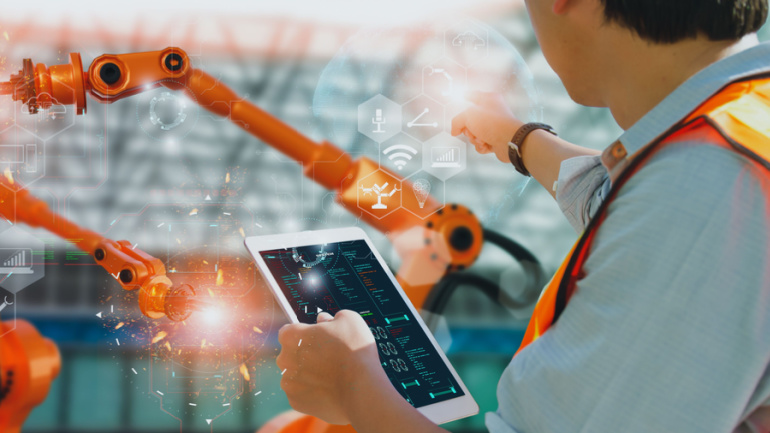Despite the seemingly lagging global investment in standalone 5G networks, promising trends in the telecom sector indicate an upcoming surge. With minimal progress indicated by Global Mobile Suppliers Association’s statistics, the industry pins hopes on major moves from operators like New Zealand’s Spark and Vodafone. Meanwhile, the increasing adoption of 5G SA in private networks for various sectors shows an encouraging forecast. The journey towards profitable 5G investments seems complex, yet strides are being made in the right direction.
Vodafone UK launches an industry-first initiative offering customers battery replacements for three years and continued coverage for manufacturing defects. This ‘lifetime service promise’ extends to both new and refurbished handsets, provided an active Vodafone Pay Monthly Airtime Plan is in place. Innovatively eliminating inconvenience, a battery diagnostic tool within the Vodafone app allows customers to easily confirm if their device requires a battery replacement.
The Department for Science, Innovation and Technology (DSIT) plans to invest £40m in converting local and regional authorities into ‘5G Innovation Regions.’ The funding will support regions with solid strategies to leverage 5G and wireless tech for sectors such as agriculture and transportation. One potential application is using 5G-powered drones to gather field data, enabling farmers to make efficient, informed decisions.
The premier Japan-EU Digital Partnership Council has unveiled a refreshingly ambitious approach towards bolstering global connectivity. Highlighting fundamental areas of mutual support, an intriguing plan of Arctic submarine network expansion piques interest. Meanwhile, an equally significant strategy promotes semiconductor industry growth, echoing an urgent call for autonomy in the global supply chain. These pacesetting initiatives promise not only to redefine EU-Japan ties, but also to spark essential digital security dialogues for the evolving tech landscape.
Outpacing the global auto industry, Zeekr, a subsidiary of Geely, has launched a groundbreaking 5G-enabled factory in Ningbo, China. Developed alongside China Unicom Zhejiang, this advanced facility leverages 5G for superior data processing, revolutionizing car manufacturing customizability. However, obstacles such as infrastructure robustness and data security come with the territory of employing 5G in production processes. Nonetheless, the potential of this intelligent blend of automotive and digital tech seems irresistible, prompting worldwide industry attention towards Zeekr’s trendsetting venture.
Huawei plans a comeback in the smartphone market with new 5G devices using domestic chip supplies. Concerns persist about the quality of these chips and Huawei’s absence from the Android Play Store. CityFibre challenges Openreach with a faster wholesale FTTH service, while Optus collaborates with SpaceX’s Starlink to expand mobile coverage in Australia’s remote areas. Ofcom investigates O2 Virgin Media over customer complaints, and the European Court of Justice rejects a ruling on the Three-O2 merger, adding to the uncertainty in the telecommunications regulatory landscape.
Global cloud communications platform Infobip has unveiled its groundbreaking product, Experiences, a generative AI-powered journey builder that empowers businesses to engage customers, foster loyalty, and accelerate growth. This innovative no-code platform offers organizations a comprehensive library of AI-powered journey templates tailored to their unique business needs, spanning from onboarding and engagement to retention and loyalty.
Taking a bold stride in data transfer innovation, the IEEE has sanctioned the 802.11bb standard, also known as LiFi. This game-changing technology uses light waves instead of radio frequencies, virtually turning an LED lightbulb into a data transmission hub. While promising high bandwidth and added security, LiFi does require line-of-sight connections, which may limit its practical applications. Industry leaders see this as more of an adjunct technology to WiFi rather than a direct competitor.
Telecom alliance Alaian is partnering with chip manufacturer Qualcomm to empower start-ups specializing in Extended Reality (XR). The alliance, comprising of seven telecom giants along with towerco Cellnex, targets initiatives involving metaverse, virtual platforms, and various services or applications from all over the globe. Despite a lukewarm response to the metaverse and the disappearance of mixed reality from the limelight, the conglomerate remains optimistic. Future XR experiences can greatly benefit from the expertise and resources provided by co-operating with Qualcomm.
Ericsson plans a €155 million investment for a smart manufacturing hub in Tallinn, Estonia. BT will reduce its workforce by 1,100 at Adastral Park while investing in modernization. Cellnex acquires full control of OnTower Poland, expanding its tower portfolio. Unicon launches an enhanced partner program for resellers in end-user computing. NEC introduces a generative AI service to drive business transformation.













